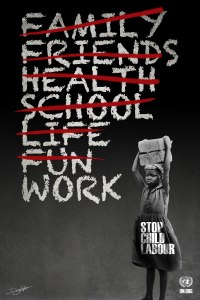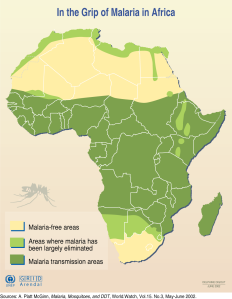Hello everyone,
Homework for Wednesday 15th May – first draft of story in a particular genre
Hi everyone,
H/W for Friday
Finish these questions (below) on Rajabu’s story from the Dogodogo collection:
Also bring a reading book for next time..
1. How did the street children (including Rajabu) behave?
Example: Rajabu and the other street children he spent his time with behaved badly towards other people. Rajabu describes how they ‘stole money, threatened people..took drugs’ to name but a few things they did.
2. Why did Rajabu do these things?
3. How did Rajabu get to Dar es Salaam?
4. What was it like for Rajabu when he first arrived in Dar es Salaam?
5. What are the different ways that Drop-In helped Rajabu?
6. Why was it hard for Rajabu to adjust to Drop-In?
7. What were the things that caused Rajabu to become a street child?
8. What are three character traits you would say Rajabu had before coming to Dar es Salaam? Have these changed by the end of the story? If so, how? What caused him to change?
9. How do you predict Rajabu’s life will turn out after the end of the story?
Grade 6B assessment – Friday 19th April
On Friday 19th April, I will:
- give you two posters on child rights, like the ones you presented on and wrote on the last few lessons
- you choose ONE
- you answer a question on the poster, related to its message
- write at least one T-P-E-E-C paragraph on your chosen poster, thinking about its purpose, audience and techniques it uses
- give a time limit to do this (by the end of the class)
- I will remind you of the structure you should use and the techniques we’ve discussed (they are also displayed in class, for you to look at)
I will mark it out of this criteria, A, B and C, as usual.
H/W for Friday 12th April
If you didn’t finish it in class or show me, you need to answer this question (below) and write a paragraph on it, remembering your T-P-E-E-C structure for a paragraph.
The poster we looked at today is shown below.
How (in what ways) does this poster communicate its message?
Example I showed you of a paragraph, answering this question, is below.
But before you start, you need to choose one of the 5 techniques we talked about today, to make your point:
1. visual imagery (for example, the girl in this picture, her expression, her stance, or the use of black and white for most of the ad)
2. emotional appeal (something in the ad that appeals to the viewer, emotionally, makes us have some kind of emotional reaction to what we see)
3. diction (diction means choice of words), look at the diction in the ad, the word choices, and what they suggest, how they connect to the ad’s message
4. contrast (two or more things that are different from each other, for example, the use of colour in this ad)
5. structure and layout (how the poster is presented, why do you think the words are in a list like that, why are the words bigger than the girl, why is the girl positioned in the right hand corner..etc)
Example paragraph:
This poster by the United Nations raises awareness of child labour. One way this poster tries to persuade us to think about child labour is through its use of visual imagery. The poster shows a young girl dressed in old clothes carrying what look like bricks on her head, and she has an unhappy expression. This use of visual imagery links with the issue of child labour, as it shows a young girl doing work no young person should be doing. The bricks she is carrying look bigger than her head, her arms do not look strong but her expression suggests this is normal life for her, that her work is never-ending. The visual imagery of her clothing, her stance and her expression all help the viewer connect with the issue of child labour and make us feel sorry for children like her in this situation.
H/W for Wed 10th April
This image shows the high risk areas for malaria in Africa. You can see it’s still high in Tanzania..
Focus on World Health Day (yesterday). Before reading time in the library today (once a 10 day cycle), we looked at how malaria in particular can link with some of the Articles of the U.N. Rights of a Child. Facts and statistics according to the video I showed you (different sources have different facts/statistics):
- Every 30 seconds, a child dies from malaria
- Every year, a million die from malaria
- Most malaria-related deaths occur in sub-Saharan Africa (I showed you what’s meant by ‘sub Saharan’
We discussed problems caused by malaria, such as people losing their jobs because they get ill, losing income for their families as well as affecting the whole country’s economy; some can’t access the medicine; some can’t afford the medicine or know how to take it; some don’t recognise the symptoms of malaria, some don’t act until it’s too late..
http://www.unicef.org/infobycountry/tanzania_53431.html
Read the article by the U.N. on malaria in Zanzibar (see link above, and sheet given to you in class). You may need to find out some of the more difficult words. Feel free to come and ask me before Wednesday about it if you need to.
Homework for after the holiday
Homework for next time:
POINT: An example of how Isaac was deprived one of his child rights (which one?).
EVIDENCE: Where is he deprived of this right? (Find the quote and page number, or if you don’t have this from the Dogodogo book, refer to the part of the story where this right is denied Isaac. What happens?)
EXPLANATION: How does this quote show, and prove, that Isaac was deprived this right that you mentioned in your Point? What does it show about the person that deprived him of it? How do you think Isaac felt about this? Do you think he knows it’s a right?
CONCLUDING SENTENCE: ‘This right is just one of the many rights Isaac does not have in his life because…’
World Water Day
MYP Language A/English assessment criteria I used to work out your latest grade
I looked at:
- Your ‘Daydreamer’ character description
- Your storyboard for an additional chapter of ‘The Daydreamer’
- Your answer in three paragraphs to one of the 3 questions on ‘The Daydreamer’ (the last assessment you did)
I looked at those three pieces (although some students did not have all three for various reasons!) and used this criteria (click on the link below) to mark your work. You should know WHY you got the grade you did, from this criteria, and if not, we can discuss it more.
For your term 3 grade, I use the grade I made for the pieces above, but also any other information I have (your homework, your attitude in class, your class work..) to decide what grade I believe you deserve for this term.
Miss Boulter
H/W for Monday
Homework for Monday: Answer these questions in full sentences.
- What do you think the reasons are for why we have street children in Dar? (Thinking about the video you saw, your own knowledge, and from reading Isaac’s story.)
- What rights of a child are street children denied? Why don’t/can’t they have these ‘rights’? (You could refer to the ‘Rights of the Child’ list. You should have this, but it’s also on the blog)
- Who do you think is responsible for making sure street children in Tanzania have their rights as a child? What could be done to make sure they have their rights?

